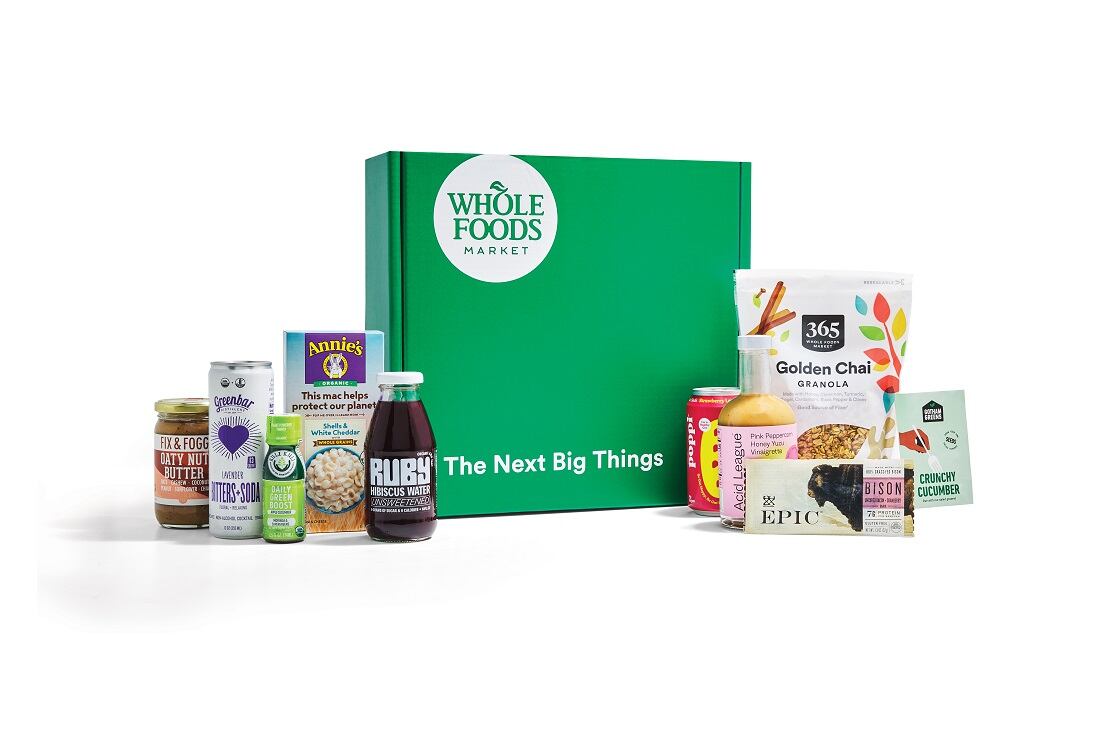In its seventh-annual food trends report, the Whole Foods Trends Council — a group of more than 50 Whole Foods Market team members with decades of trend watching experience including regional and global buyers, local foragers, and culinary experts — shared their top ten predictions for the forthcoming year.
“Last year, we saw tremendous pandemic-related shifts in grocery buying habits as the world adjusted to spending more time at home. As the food industry slowly adjusts to a new normal, we expect to see consumers prioritize food and drink products that deliver additional benefits—like functional sodas and tonics— and products that support their sense of well-being, like urban garden greens and products grown with farming processes that help address soil health,” said Sonya Gafsi Oblisk, chief marketing officer at Whole Foods Market.
“We look forward to watching these trends take form in grocery aisles and on our plates in 2022.”
See how to try each emerging food trend HERE.
Ultra-urban farming
In 2013, Whole Foods Market opened a co-located retail store in Brooklyn with a Gotham Greens greenhouse on top, providing fresh and sustainably grown herbs and salad greens in greenhouse systems using sunlight and 100% renewable electricity.
"Since then, innovation in indoor farming has ballooned, from hydroponics and aquaponics to mushrooms grown above our grocery aisles — and even fresh produce grown by robots. Producers are finding new, boundary-pushing ways to grow hyper-local crops and maximize efficiency," said Whole Foods.
Yuzu
Yuzu — a lesser-known citrus mainly cultivated in Japan, Korea and China — is taking the culinary world by storm, said Whole Foods.
With a tart and sour flavor profile, Whole Foods predicts that consumers will see yuzu appearing in more in vinaigrettes, hard seltzers, mayos, and other packaged items.
Reducetarianism
As plant-based alternatives become more prevalent, consumers are increasingly taking a 'reducetarianism' approach — reducing consumption of meat, dairy and eggs while not completely eliminating animal products — to their diets.
Hibiscus
Well-known and widely-used in the tea category, manufacturers are leveraging the sweet and tart flavor and the natural vitamin C content of hibiscus for use in other products such as fruit spreads, yogurts, and other craft beverages.
Booze-free drinks
"The dialed-down spirits category experienced record growth in our stores this year. With millennials and Gen Z-ers dabbling in 'drysolation' during the pandemic, we don’t see the sober-curious mindset going away anytime soon," noted Whole Foods, adding that consumers can expect to see a new lineup of drinks that provide the taste and sophistication of cocktails without the buzz.
'Grains that give back'
Grains grown using regenerative agriculture practices and farming processes that help address and improve soil health will increase in popularity and awareness, according to Whole Foods.
Sunflower seeds
Sunflower seeds are appearing in more products from crackers to ice cream, according to Whole Foods, anticipating that sunflower seeds will become a popular snack with many households.
"Parents, take note — many sunflower seed–based products are made without nuts, which means allergy-friendly school snacks," the retailer noted.
'Moringa's moment'
Traditionally used as an herbal remedy in parts of India and Africa, the US market is just beginning to catch on to the nutrient powerhouse of moringa, according to Whole Foods.
"It can be found in powder form and added to make magic in smoothies, sauces and baked goods. It’s also showing up in unexpected products like frozen desserts, protein bars and packaged grain blends," noted Whole Foods.
Functional fizz
"Today, bubbly beverages are doing double duty," said Whole Foods, noting how consumers want their sparkling drinks to pack in flavor and nutrition, giving rise to an emerging category of better-for-you soda with added prebiotics and botanicals with minimal added sugar.
Turmeric
Used for centuries in Ayurveda and traditional Chinese medicine, turmeric is continuing to take off in popularity in the US as a dietary supplement and added ingredient to many packaged foods including cereals, sauerkraut, and plant-based ice cream sandwiches.

